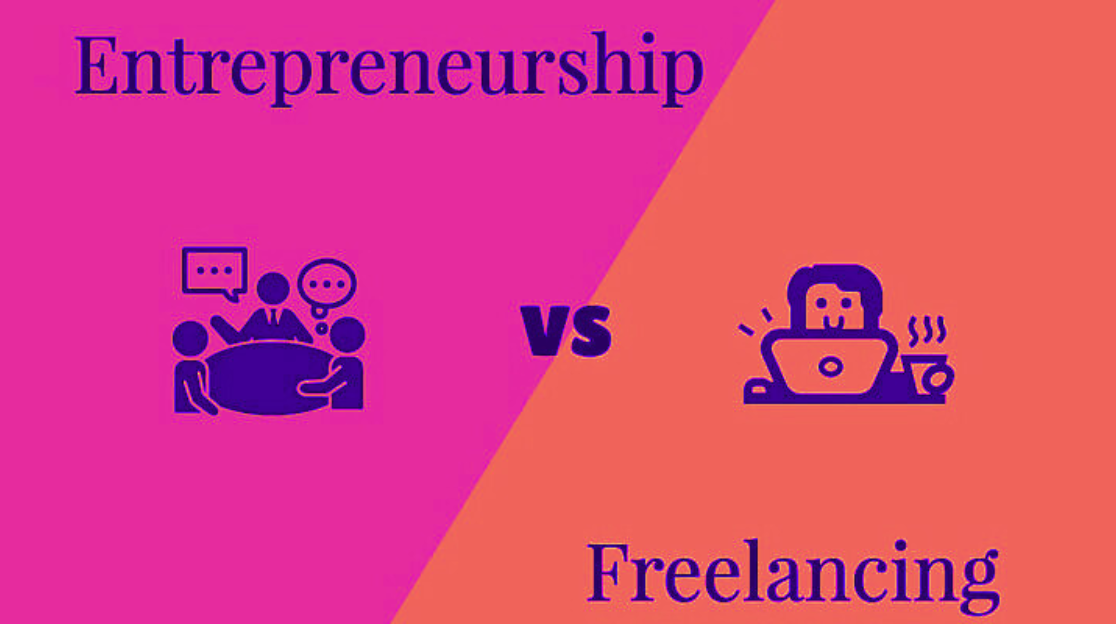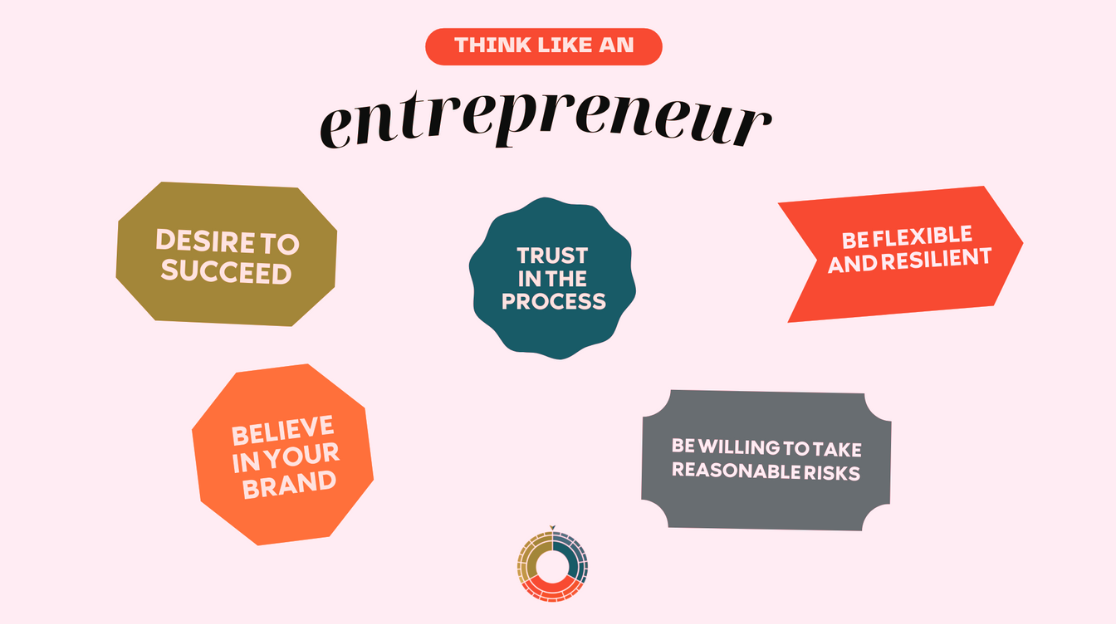Introduction
As the traditional job landscape evolves, more people are exploring paths that offer independence, flexibility, and control over their careers. Two popular options are freelancing and entrepreneurship, each offering unique opportunities and challenges. However, deciding between freelancing and entrepreneurship is a significant choice that can shape your career trajectory and personal life. Let’s explore what each path offers, the core differences, and how you can choose the best fit for your goals.
What is Freelancing?
Definition of Freelancing
Freelancing is a self-employment model where individuals offer their skills and services on a project or contract basis. Unlike traditional jobs, freelancers have the flexibility to choose their clients, set their rates, and work from almost anywhere.
Types of Freelance Work
Freelancing covers a broad spectrum of industries. Common freelance jobs include graphic design, writing, programming, consulting, and digital marketing. Freelancers often find clients through online platforms, networking, or referrals.
Skills Needed to Succeed as a Freelancer
To thrive as a freelancer, strong communication skills, self-discipline, and time management are essential. Freelancers must also be adaptable, as they often juggle multiple projects and client expectations.
What is Entrepreneurship?
Definition of Entrepreneurship
Entrepreneurship involves creating and running a business, typically from the ground up. Entrepreneurs take on financial risk in pursuit of profit, often building teams and innovating to solve problems in their target markets.
Common Types of Businesses for Entrepreneurs
Entrepreneurs may start businesses in various industries, including retail, technology, health, and consulting. Businesses range from small startups to more extensive, growth-oriented companies, depending on the entrepreneur’s goals.
Core Qualities of Successful Entrepreneurs
Successful entrepreneurs are typically risk-takers, visionaries, and problem-solvers. They often possess a unique blend of resilience, creativity, and a passion for innovation, making them capable of overcoming challenges.
Key Differences Between Freelancing and Entrepreneurship
Structure and Business Model
Freelancers work independently, while entrepreneurs typically build a structured business with multiple employees and revenue streams. Freelancers focus on personal skill-based projects, whereas entrepreneurs develop scalable business models.
Financial Investment
Freelancers usually have minimal startup costs, often just requiring tools for their trade. Entrepreneurs, however, may need significant capital for business setup, hiring, and marketing.
Autonomy and Decision-Making
While both paths offer independence, freelancers generally have more control over their daily schedules. Entrepreneurs, on the other hand, often face the responsibility of managing teams and making strategic business decisions.
Income Potential and Stability
Freelancers rely on client projects for income, which can vary monthly. Entrepreneurs, although facing initial instability, can build businesses with the potential for more significant and stable profits over time.
Client Dependency and Scaling Opportunities
Freelancers are typically client-dependent and face limited scalability. Entrepreneurs, however, can scale their businesses by expanding operations, entering new markets, or diversifying products and services.
Pros and Cons of Freelancing
Advantages of Freelancing
- Flexibility to choose clients and projects
- Minimal startup costs
- Ability to work remotely
Drawbacks of Freelancing
- Irregular income
- Limited growth potential
- No employee benefits
Pros and Cons of Entrepreneurship
Advantages of Entrepreneurship
- Potential for unlimited income
- Opportunity to innovate and create jobs
- Ability to build and grow a lasting business
Challenges Faced by Entrepreneurs
- Higher financial risk
- Long hours and greater responsibility
- Complexity in managing teams and operations
Which Path is Right for You?
Personality Traits for Freelancers vs. Entrepreneurs
Freelancers often prefer independence and flexibility without the commitment of managing a large team. Entrepreneurs, however, are often visionaries, motivated by the challenge of building a business.
Financial Considerations
If you prefer minimal financial risk, freelancing may be a better choice. Entrepreneurship often requires investment but offers higher earning potential.
Long-Term Goals and Lifestyle Choices
Consider your lifestyle goals: if you value a flexible, project-based work style, freelancing may suit you. Entrepreneurship may appeal if you’re driven to create and scale a business.
How to Transition from Freelancing to Entrepreneurship
Recognizing the Right Time to Scale
If you consistently have more clients than you can handle, it might be time to transition to entrepreneurship.
Developing a Business Plan
Start by outlining a business model that can grow beyond just your services, perhaps by hiring or automating tasks.
Building a Network and Hiring Help
Networking and hiring can help you delegate tasks, allowing you to focus on strategy and scaling.
How to Transition from Entrepreneurship to Freelancing
When Downsizing Makes Sense
If managing a business becomes overwhelming, freelancing can offer a simpler alternative.
Leveraging Entrepreneurial Experience in Freelancing
Your entrepreneurial skills, such as client management and strategic thinking, can enhance your freelance career.
Adjusting to a Flexible Work Model
Freelancing offers more personal freedom, requiring an adjustment in mindset from a structured business environment.
The Financial Aspects: Freelance Earnings vs. Entrepreneurial Profits
How Freelancers Typically Earn
Freelancers earn per project or hourly, with income varying based on workload and client base.
Profit Models for Entrepreneurs
Entrepreneurs generate profits through sales, services, and potentially passive income streams.
Managing Expenses and Investments
Both freelancers and entrepreneurs need effective expense management, though entrepreneurs often face larger overheads.
Work-Life Balance in Freelancing vs. Entrepreneurship
Flexibility and Work Hours
Freelancing generally offers more flexibility, whereas entrepreneurship often involves long hours, especially in the startup phase.
Setting Boundaries
Freelancers need clear client communication to avoid overwork, while entrepreneurs need team structures for balance.
Growing and Scaling in Freelancing vs. Entrepreneurship
Freelance Growth Strategies
Freelancers can grow by expanding their client base or specializing in high-demand skills.
Business Scaling in Entrepreneurship
Entrepreneurs often scale through team expansion, new products, and market diversification.
Future Trends: Freelancing and Entrepreneurship in the Coming Years
Technology’s Role in Independent Work
Advances in tech are making remote and independent work more accessible, benefiting both freelancers and entrepreneurs.
Industry-Specific Trends
Different industries show varying opportunities for freelancing and entrepreneurship, driven by tech and consumer demands.
Conclusion
Freelancing and entrepreneurship each offer unique paths to independence. Choosing the right one depends on your personality, goals, and lifestyle preferences. Whether you seek flexibility or the thrill of building a business, the right choice will empower your career and personal growth.
FAQs
Which is more profitable, freelancing or entrepreneurship?
Entrepreneurship can be more profitable due to scalability, though it involves higher risks.
Can a freelancer become an entrepreneur?
Yes, many freelancers transition to entrepreneurship by scaling their services or starting a business.
How do I know if freelancing or entrepreneurship is right for me?
Consider your goals, personality, and risk tolerance when choosing.
What are the biggest risks in freelancing vs. entrepreneurship?
Freelancing risks include inconsistent income, while entrepreneurship risks involve financial investment and business management.
Is it possible to do both freelancing and entrepreneurship?
Yes, many individuals successfully manage freelance projects alongside entrepreneurial ventures.



